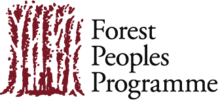
Indigenous women-led food sovereignty initiatives serve as entry point into political participation

Through women-led food sovereignty initiatives in the Philippines, Indonesia and Bangladesh, indigenous women are not only supporting the wellbeing and life of their communities – they are organising as collectives and cooperatives that extend their work beyond growing food, into related concerns such as self-determination, climate solutions, alternative economies, and political participation in local and territorial governance, policy, and decision-making.
In all three initiatives, which were supported by the FPP Gender Programme, the women were already organised around growing food according to traditional knowledge and indigenous practices, which served as a catalyst for their introducing collective food sovereignty practices.
Research by Partners for indigenous Knowledge Philippines (PIKP) in 2023 highlighted that most of the indigenous home gardeners in Baguio city inherited their knowledge of gardening from their parents, with mothers taking the lead. PIKP has since been working with indigenous women gardeners who are revitalising traditional food systems, to promote traditional food sovereignty practices and support them in creating a network to exchange knowledge and heirloom seeds.
This year, the women established the Ba-ëng Network of Home Gardeners in Baguio and five surrounding municipalities. The organisation is a central hub for indigenous women home gardeners and urban gardeners in general.
Through PIKP’s partnership with Global Seed Savers, an organisation promoting seed sovereignty, network members are receiving training on seed saving skills. Seed exchange and seed sharing, long practised by women of the Ili community, have now become traditions among members.
The network has been officially recognised by the Department of Agriculture and by the City Veterinarian Agriculture Office. Initial linkages have been made with the city council.
While the recognition of ancestral lands and ancestral domains still faces hurdles, the women’s network has raised awareness among members of gender justice, collective land rights, and self-determination.
Overview
- Resource Type:
- News
- Publication date:
- 1 November 2024
- Region:
- Bangladesh Indonesia Philippines
- Programmes:
- Culture and Knowledge Conservation and human rights Partner Led Actions
- Partners:
- Partners for Indigenous Knowledge Philippines (PIKP)

